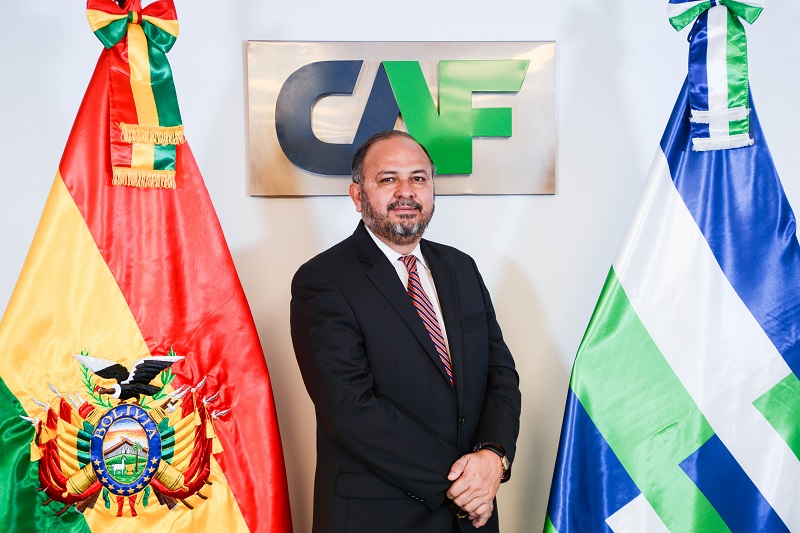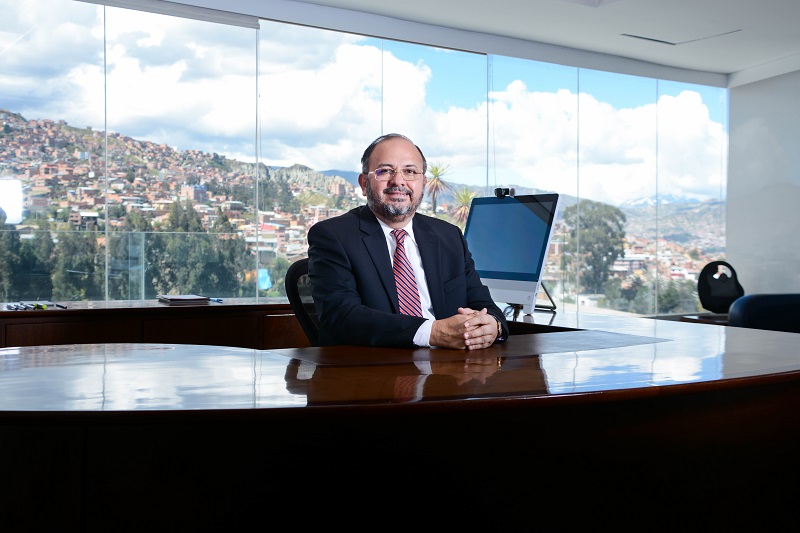Florentino Fernández is CAF’s New Representative in Bolivia
Costa Rica’s Florentino Fernández has been appointed head of CAF’s office in Bolivia, with the mission of strengthening relations with the country by devising work programs with the public and private sectors that promote sustainable development and regional integration.
Costa Rican economist Florentino Fernández is the new representative of CAF—development bank of Latin America—in Bolivia, effective as of April 16.
Florentino Fernández has a long professional career in Costa Rica, his home country, as well as in the Central American Bank for Economic Integration (BCIE), where he served as Country Manager in Panama and Guatemala. At that international body where he worked for 24 years, he was a credit supervisor and Central American coordinator for the Municipal Financing Program and for the development of small and micro-enterprise in that region.
Fernández’s professional highlights include his most recent position as assistant manager of Environment, Research and Development at the Costa Rican Institute of Aqueducts and Sewers. He also served as manager at Horus Technology and as a consultant for UNDP-UN.
CAF’s new authority in Bolivia is an economist from the National University of Costa Rica and holds a Master’s Degree in Economic Policy for Central America and the Caribbean from the same university. He has completed specialized studies in Leadership and Management Development, Business Coaching, Renewable Energy Project Structuring and Project Finance, among others. He has also completed advanced studies at Spain’s Institute of Stock Market Studies, the Development Bank of Japan, Durham University in England and Harvard Business Publishing, among others.
He is the author of important research, such as Labor Market Segmentation and Economic Policy, the Case of Costa Rica: 1979–1989, and Interrelationships between Economic Policy and the Costa Rican Labor Market.
As a Representative, he will help strengthen relations between CAF and Bolivia by devising work programs with the public and private sectors that promote sustainable development and regional integration.
CAF's more recent content

CAF, ECLAC, IDB and PAHO Promote Sustainable Development in the G20
The Regional Organizations of the Americas congratulate Brazil on its successful G20 Presidency, highlighting its leadership on key issues such as poverty, governance, and climate change. They also reaffirm their commitment to actions that promote equity and development in the region.
Urgent Call for Action to Safeguard Caribbean SIDS at CAF Symposium
As the global community grapples with the escalating climate crisis, Caribbean Small Island Developing States (SIDS) are running out of time to secure critical investments and support needed to strengthen their economies and protect vulnerable communities from the intensifying impacts of climate change. With the window to take decisive action rapidly shrinking, CAF - Development Bank of Latin America and the Caribbean, in partnership with the Commonwealth Secretariat and the Antigua and Barbuda High Commission, brought together key stakeholders for a symposium in London to address the critical vulnerabilities Caribbean SIDS face.

